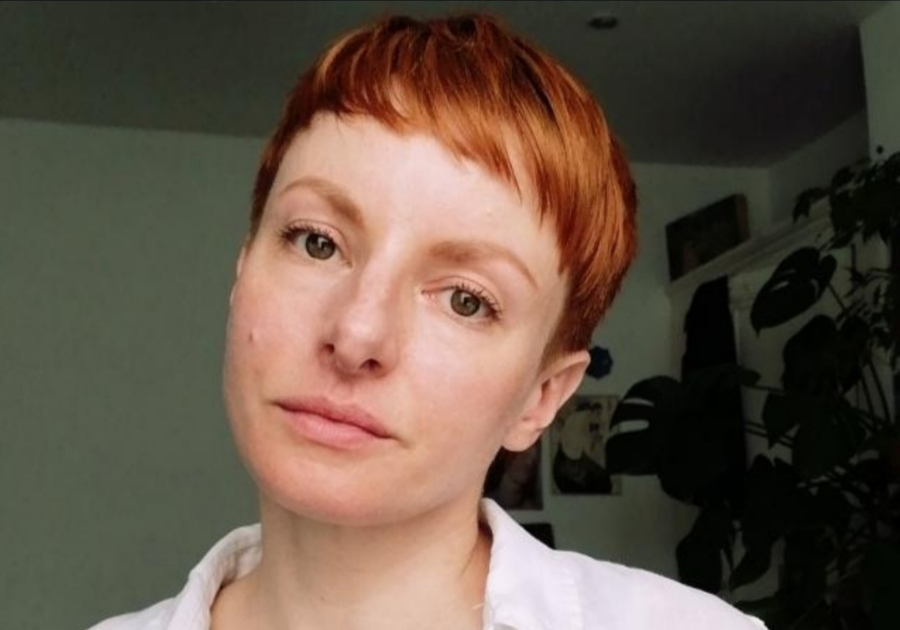From school leaver to solicitor to health researcher: Alice's story
19 December 2023 London School of Hygiene & Tropical Medicine London School of Hygiene & Tropical Medicine https://lshtm.ac.uk/themes/custom/lshtm/images/lshtm-logo-black.png
Alice Gambell
Tell us more about your academic journey before you joined LSHTM to study a research degree?
Before joining LSHTM, I studied law at Birkbeck University of London, the University of Law in Bloomsbury, and then the University of Bristol. I undertook an undergraduate law degree (LLB) at Birkbeck at the age of 29. I then went on to do a Graduate Diploma in Law at the University of Law, more commonly known as the Legal Practice Course (LPC); the course previously required to undertake a training contract to become a solicitor. After completing the LPC I trained to be a solicitor and a couple of years after that, I undertook a legal masters (LLM) in Health, Law and Society at the University of Bristol.
What barriers would you say you have you faced during your education?
I started university later than most and with no A-levels, so it was definitely a shock to the system to come back into education after such a long time away from it! I was the first person in my family to go to university. I do not come from a wealthy family and often experienced poverty growing up, along with additional family difficulties that can sometimes stem from poverty. I was not always able to access the same opportunities when growing up as those in middle-class or wealthy families, and further and higher education wasn’t really seen as important, so I started to work full-time after leaving school at 16. Unfortunately, coming from a certain socio-economic background such as mine, did sometimes mean encountering barriers in higher education. This could be from people making assumptions about my (non-posh) accent and lack of confidence in articulating my ideas in seminars, to me myself questioning whether I deserved to be there. Finally, I also have dyslexia and dyspraxia so that means I have had to do a lot of adapting and working longer hours.
What advice would you give to help someone overcome similar challenges?
You absolutely can do it and you absolutely deserve to be here. Make sure to tap into the support services, and make sure you get all the reasonable adjustments you need in order for you to be able to study in the best way possible. Find your people, don’t study on your own. Having support networks and study groups or just regular meet-ups to discuss work is massively important, necessary even, for your own sanity, wellbeing and motivation. If there are extra pots of money available; hardship funds, scholarships, or any other financial assistance, go for it. I couldn’t have done what I have without scholarships, bursaries and hardship funds. Also, don’t be afraid of contacting people to network. Some of the opportunities I have been met with are due to me contacting other academics and having chats over Zoom. People are usually pretty friendly, especially if you are into their research - be brave!
Explain your research topic in one sentence.
Historical research, looking at access to healthcare in prisons in England and Wales from 1996 to 2021.
How did you apply for your research degree?
I submitted my own proposal, and applied via a scholarship opportunity at The Centre for History in Public Health at LSHTM.
How did you make your application stand out from other applicants?
By showing that I really understood the area I wanted to research, that no one else had undertaken this research before and that my research would be of interest to a number of academic schools, as well as have the potential to produce research outputs which are accessible to the public and have the potential to shape future policy.
How have the barriers you’ve faced shaped your academic and personal development?
It’s made me more resilient, confident and it has also made me manage my time and deadlines better. It’s made my world bigger, changed my worldview, provided me with critical thinking skills, made me better at speaking, articulating my own ideas to people, listening to others, speaking with groups and speaking in public. Also, being able to face barriers, overcome them and/or adapt to them, and see things through to the end with good results, does give you a massive sense of achievement and makes you realise that you can do hard things.
How are you finding your research so far?
I get to read every day about a subject that I am deeply passionate about, so I feel very, very lucky. It’s been extremely interesting so far, I feel like I have learnt so much already.
What are your plans for after your research degree?
I have some further research ideas relating to my current research project, so it would be amazing to get further funding to do some post-doctoral research. I also would like to develop and teach a module on the carceral determinants of health.
What advice would you give to someone considering applying for your course at LSHTM?
LSHTM is a very supportive environment and a good place to undertake a PhD. Be familiar with your subject matter. In preparation, do background research in the area you want to undertake research. Contact and speak with potential supervisors (I found this extremely helpful). Finally, it always helps to undertake research in an area that you are interested in and passionate about.
